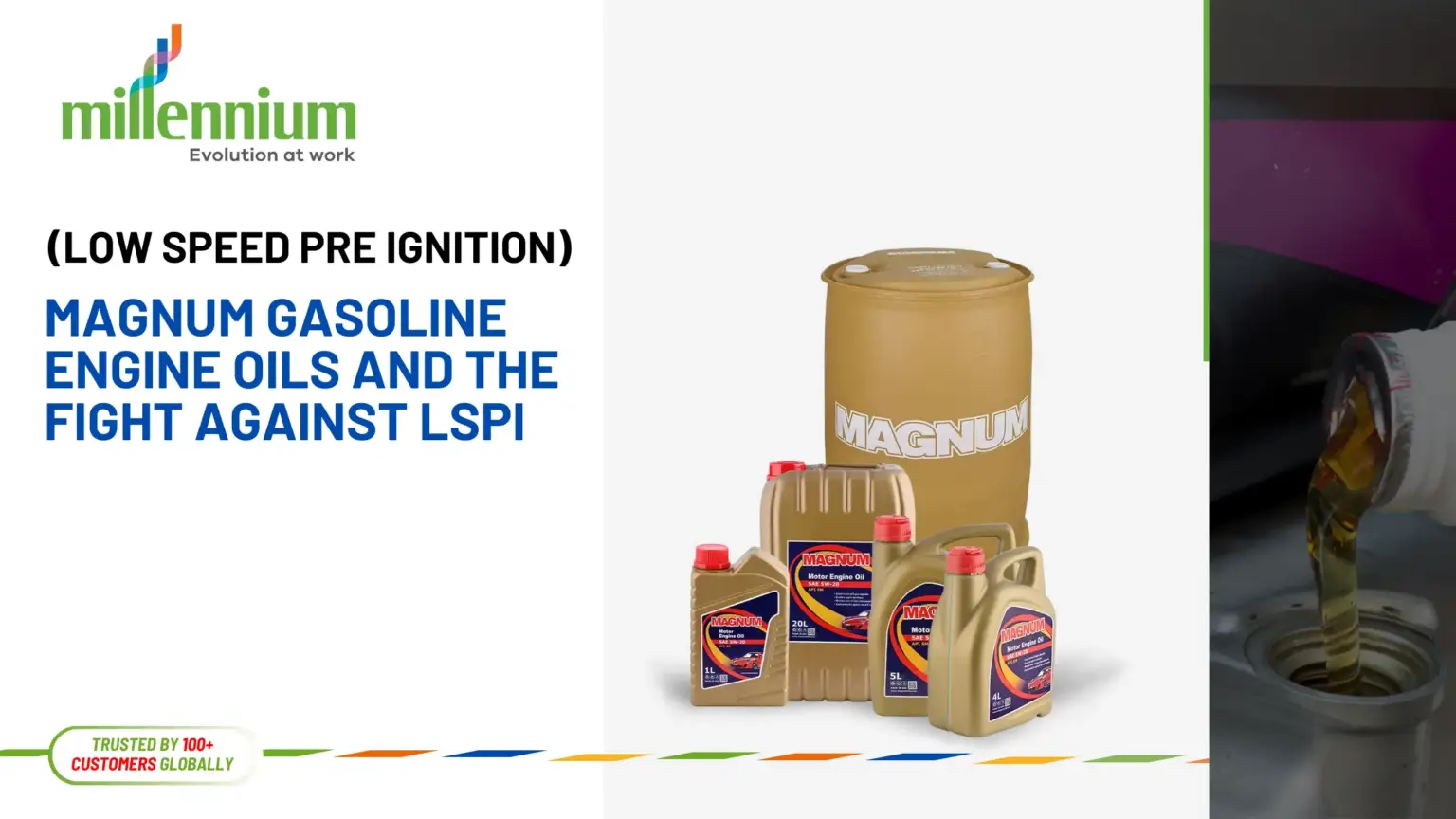Subtotal $0.00
Understanding Lspi And Its Impact On Engines
Low Speed Pre-Ignition (LSPI) is a pressing issue in modern gasoline engines, particularly in smaller, turbocharged, and direct-injection engines that are designed to meet stringent fuel efficiency and emission standards. LSPI occurs when fuel-air mixtures ignite prematurely in the combustion chamber. Unlike regular pre-ignition, which happens at high speeds, LSPI typically occurs at lower engine speeds and high loads, making it more unpredictable and damaging.
The impact of LSPI on engines can be severe. It generates an abrupt and violent rise in cylinder pressure, which can lead to engine knocking. This unexpected detonation places immense stress on engine components, potentially causing severe mechanical damage such as broken pistons, cracked cylinder walls, and damaged rings. Furthermore, LSPI events are not just one-off occurrences; they can happen repeatedly over time, compounding damage and drastically reducing engine longevity and reliability.
LSPI’s increasing prevalence in modern engines is primarily due to design changes aimed at boosting fuel economy. These changes, while beneficial in many respects, inadvertently create conditions more conducive to LSPI. Understanding and mitigating LSPI is crucial for maintaining engine performance and longevity. Engine oil plays a significant role in this effort, as the formulation of certain oils can help reduce the likelihood of LSPI, ensuring that engines remain healthy and efficient over their operational lifespan.
Introducing Magnum Gasoline Engine Oils
Magnum Gasoline Engine Oils emerge as a sophisticated solution in the ever-evolving domain of engine maintenance and protection. Understanding the intricate challenges posed by modern engines, particularly the prevalent issue of low speed pre-ignition (LSPI), Magnum has crafted a range of premium oils specifically tailored to meet these demands. With advancements in engine technology leading to enhanced performance and efficiency, the susceptibility to issues like LSPI has inadvertently increased, necessitating oils that not only lubricate but also protect engines under these specific conditions.
Magnum Gasoline Engine Oils employ a proprietary blend of high-quality base oils and state-of-the-art additive technology to offer comprehensive protection against LSPI. These oils are specifically engineered to withstand the high pressures and temperatures associated with LSPI events, thus ensuring a significant reduction in the occurrence of this phenomenon. Moreover, Magnum oils are formulated to enhance wear protection, reduce deposit formation, and improve fuel economy, making them a holistic maintenance solution for modern gasoline engines.
Magnum Gasoline Engine Oils represent a commitment to pioneering lubrication technology, addressing not only the symptoms of LSPI but also fortifying engines against potential internal damage. By choosing Magnum, users invest in long-term engine health and performance, benefitting from an oil that aligns with the nuanced needs of contemporary engine design and operation.
How Do Magnum Oils Combat Lspi?
Magnum gasoline engine oils combat low speed pre-ignition (LSPI) through a combination of advanced formulation techniques and cutting-edge additives. LSPI is a phenomenon occurring in modern turbocharged, gasoline direct-injection engines, causing unexpected combustion events that can lead to severe engine damage. This challenge is addressed by Magnum oils, which are specifically designed to mitigate these risks while enhancing engine performance and longevity.
Central to the effectiveness of Magnum oils in combating LSPI is their meticulously engineered additive package. These additives are purposefully developed to stabilize the combustion process by reducing the occurrence of deposits in the combustion chamber, which are known contributors to LSPI. Additionally, the oil’s high-performance detergent and dispersant components help maintain a cleaner engine environment, which is crucial in preventing LSPI.
Magnum oils also optimize the balance of calcium and magnesium detergents, which is a critical aspect, as certain detergent formulations have been identified as triggers for LSPI. This careful formulation ensures that the oils maintain engine cleanliness without increasing the likelihood of pre-ignition events. Magnum oils are engineered to provide the right viscosity and friction characteristics, enabling smooth engine operation and minimizing the conditions that lead to LSPI.
How Magnum Oils Address Specific Engine Needs
Magnum gasoline engine oils are meticulously formulated to address specific engine needs, particularly those associated with modern turbocharged gasoline direct injection (TGDI) engines, which are more susceptible to low-speed pre-ignition (LSPI). The unique formulation of Magnum oils includes advanced additive packages that not only provide excellent lubrication but are also designed to operate effectively in various engine architectures and conditions. These oils are crafted to deliver superior viscosity characteristics, ensuring that the oil maintains optimal thickness under different temperature ranges.
This adaptability is crucial, particularly in engines where temperature fluctuations can significantly affect performance.
Moreover, Magnum oils incorporate detergents and dispersants that play a critical role in keeping the engine clean. By reducing deposits that can lead to hotspots and LSPI events, they contribute to more stable and efficient engine operation. The friction-modifying additives present in Magnum oils also help in minimizing wear and tear of critical engine components, which is essential for prolonging engine life in demanding driving conditions.
Advantages Of Choosing Magnum Oils For Lspi Prevention
Magnum gasoline engine oils offer significant advantages in the fight against low speed pre-ignition (LSPI), a phenomenon that can lead to severe engine damage. These oils are engineered with advanced additives and formulations designed to mitigate the risks associated with LSPI, thereby ensuring optimal engine performance and longevity. One of the primary benefits of using Magnum oils is their ability to provide exceptional cleanliness and deposit control.
By maintaining a cleaner engine environment, these oils reduce the likelihood of particles that may contribute to LSPI, thus allowing the engine to operate smoothly and efficiently.
Conclusion: Ensuring Engine Health With Magnum Gasoline Engine Oils
In conclusion, Magnum Gasoline Engine Oils are pivotal in ensuring the longevity and efficient performance of modern engines by effectively addressing the challenges posed by low-speed pre-ignition (LSPI). LSPI is a phenomenon that can lead to significant engine damage, including piston damage and potentially catastrophic engine failure, particularly in newer engines that are designed for higher efficiency and lower emissions. Magnum oils are specifically formulated to combat LSPI by utilizing advanced chemical compositions that enhance the oil’s ability to lubricate under high pressures and temperatures, effectively minimizing the chance of unexpected ignition events.
Furthermore, Magnum’s specialized additives work to reduce deposits and keep engine components cleaner, which is crucial for maintaining the delicate balance necessary to prevent LSPI. By addressing specific engine needs such as turbocharging and downsizing, Magnum oils provide a targeted solution that aligns with the requirements of modern engines. This targeted approach not only helps in mitigating LSPI occurrences but also supports overall engine health, leading to better performance and a longer lifespan.












